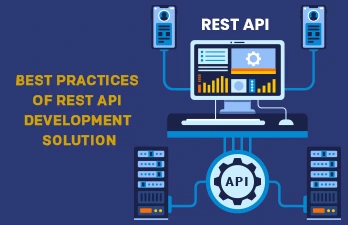Smart water management needs the integration of various systems and a network of measures for monitoring, controlling and regulating the quality and usage of water resources along with maintaining the associated equipment. According to the UN report, by 2025, water scarcity will certainly affect around 20% of the population and indirectly affect the remaining planet’s inhabitants and the entire ecosystems. Smart water systems depend on the combination of Big data, AI technologies, and Internet of Things that assists in preventing all these from happening and undoing any damage due to the improper usage of water resources that has been caused already.
Main objectives of Smart water management

The main objective of smart water management is sustainable and reasonable usage as well as recycling of the water resources. Check out the main objectives of Smart water management using the IoT technology.
Reduce wasting water
Smart water management helps to minimize usage of water usually utilized in higher amounts for manufacturing, agriculture, and power production. It reflects the introduction of advanced practices like smart irrigation, precision farming, real-time water metering, crop water management, and various other applications of IoT in agriculture. Nowadays everyone is implementing agriculture software development services to simplify the tasks.
Read more: How to build an Internet of Things (IoT) Application?
Improved water quality
Enhancing the quality of water and preventing contamination due to the wastage of chemicals and natural pollution like acidification. In order to maintain and improve the quality of water, many reputed organizations are using IoT technology and sensors in order to monitor and control in real-time monitoring.
Improves the efficiency of water systems
Smart water management using the IoT technology will help in enhancing the efficiency of the water systems like treatment plants, water collectors, waste water recycling centers, and distribution mains. By implementing the data solutions and IoT for asset management, many organizations can keep essential measurements like temperature, water pressure, flow, and many more. Integrating predictive maintenance helps in avoiding downtime and breakage of the equipment.
Implement leakage control
You can attain leakage control by implementing smart water management devices that are equipped with moisture and leak sensors. Around $3 billion will be spent in order to fix the damage that has been caused by having leakage yearly. Leakage control is very important to keep budget and water resources safe.
Practice consumption monitoring
Implement consumption monitoring using the IoT-powered water management systems. It assists in optimizing and keeping under control the utilization of water resources at various levels including communities, households, countries as well as the entire planet.
Advantages of Smart water management using the IoT technology

There are various advantages of implementing Smart water management using the IoT technologies. Let’s discuss how exactly smart water management systems influence the conservation, consumption, as well as quality of the water resources on our planet.
Transparency
One of the major advantages of smart water management using IoT is to enhance the transparency of complete processes in the water supply chain. Data collected from the supply chain, various stakeholders achieve greater insights on their system performance and resources. This will result in making informed decisions on how to enhance their operations.
Read more: IoT Based Automated Temperature Monitoring System
Immediate response
An Integrated intelligent water management system has the capability of identifying or even predicting issues and responding immediately to reduce damages. For example, real-time monitoring of quality of water as well as chemical composition will enable you in detecting even a minimum contamination and begin rapid response even before it becomes harmful.
Optimized use of human resources
IoT water management solutions enable managers to fully or partially automate all the processes as well as optimize the usage of human power. The scope and depth of the automation will differ based on the sector and particular business requirements. For example, utility networks as well as smart water supply companies will automate the complete lifecycle of offering water to customers by making use of the connected meters, dynamic pricing models, as well as real-time monitoring systems.
Optimized cost
Automation, data-driven strategy, proactive approach, and optimized usage of the human resources to resource usage and equipment maintenance translating into notable savings. The main reason why most of the water companies prefer to utilize the IoT in water management is minimizing operational costs for a longer time.
Sustainability
Sustainability goals are the basis of many innovation and retrofit projects for the smart water industry but across all other sectors like logistics, construction, energy, etc. Technologies that are implemented for smart water will no longer be considered as a source of higher efficiency and savings but also as the medium for reaching various environmental goals that includes reduced pollution, carbon footprint, and water preservation.
Conclusion
Nowadays, smart water technology offers transparency and enhanced control to the entire water supply chain including a freshwater reservoir, wastewater recycling, and a lot more. Are you searching to implement IoT for water management? Looking for talented IoT software developers to assist you design and develop custom and scalable IoT software solutions for your business needs? Contact IoT developers from Nextbrain Technologies, a reputed IoT app development company extending robust water management applications using advanced IoT tools and technologies.





Saran
February 14, 2022 Author